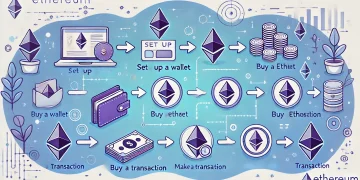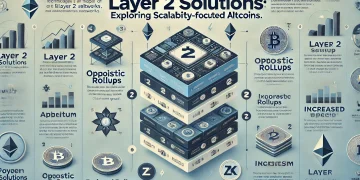The Technological Disruption of Traditional Real Estate
Blockchain technology stands at the forefront of a profound transformation in the real estate industry, promising to revolutionize how properties are bought, sold, traded, and managed. This groundbreaking technology offers unprecedented levels of transparency, security, and efficiency, challenging long-established practices that have remained largely unchanged for decades.
Understanding Blockchain’s Fundamental Impact
Decentralization and Trust
Traditional real estate transactions involve multiple intermediaries, complex paperwork, and significant trust barriers. Blockchain introduces a decentralized system that eliminates unnecessary intermediaries, reduces transaction costs, and creates an immutable, transparent record of property ownership and transactions.
Smart Contracts: Redefining Property Transactions
Blockchain-powered smart contracts represent a paradigm shift in real estate interactions. These self-executing contracts automatically enforce predefined conditions, ensuring:
- Instantaneous property transfers
- Automatic payment processing
- Reduced legal and administrative costs
- Minimal human intervention
- Enhanced transaction security
Key Applications of Blockchain in Real Estate
Property Ownership Tokenization
Blockchain enables fractional property ownership through digital tokens, democratizing real estate investments by:
- Allowing smaller investors to participate
- Reducing minimum investment thresholds
- Creating more liquid real estate markets
- Enabling global investment opportunities
- Providing transparent ownership records
Title Management and Verification
Blockchain technology offers a revolutionary approach to property title management:
- Immutable ownership records
- Instant verification of property history
- Reduced title fraud risks
- Simplified property transfer processes
- Enhanced transparency in ownership documentation
Transformative Technological Features
Secure and Transparent Transactions
Blockchain’s distributed ledger technology provides:
- Cryptographically secured transaction records
- Permanent, unalterable property history
- Reduced potential for fraudulent activities
- Complete transaction transparency
- Efficient audit trails
Global Real Estate Marketplace
Blockchain creates unprecedented opportunities for:
- Cross-border property investments
- Reduced international transaction complexities
- Lower currency exchange barriers
- Enhanced investment accessibility
- Simplified international property transactions
Challenges and Implementation Barriers
Technological Adoption Hurdles
Despite immense potential, blockchain faces significant challenges:
- Limited regulatory frameworks
- Complex technological integration
- Resistance from traditional industry players
- High initial implementation costs
- Need for widespread technological education
Regulatory Considerations
Successful blockchain implementation requires:
- Comprehensive legal frameworks
- Government collaboration
- Clear technological standards
- Investor protection mechanisms
- Robust cybersecurity protocols
Real-World Blockchain Real Estate Innovations
Emerging Technological Platforms
Several pioneering platforms are demonstrating blockchain’s transformative potential:
- Propy: Enabling complete digital property transactions
- RealT: Fractional real estate tokenization
- Harbor: Compliant real estate investment platforms
- ShelterZoom: Blockchain-powered real estate transaction systems
Future Technological Trajectory
Predicted Industry Transformations
Anticipated developments include:
- Increased institutional blockchain adoption
- More sophisticated smart contract mechanisms
- Enhanced regulatory frameworks
- Greater investor accessibility
- Integration with artificial intelligence
Economic and Social Implications
Blockchain technology promises to:
- Democratize real estate investments
- Reduce transaction costs
- Create more transparent markets
- Enable global property investment
- Simplify complex property transactions
Frequently Asked Questions
Q1: Is blockchain secure for real estate transactions? Blockchain offers superior security through cryptographic technologies and decentralized verification.
Q2: How quickly can blockchain transform real estate? Gradual adoption is expected, with increasing implementation over the next 5-10 years.
Q3: What are the primary benefits for investors? Reduced costs, increased transparency, and enhanced investment accessibility.
Q4: Are there legal challenges? Existing regulatory frameworks require significant adaptation to accommodate blockchain technologies.
Q5: Can blockchain reduce real estate fraud? Blockchain’s immutable record-keeping significantly minimizes fraudulent activities.
Conclusion: A Technological Revolution
Blockchain technology represents more than a technological innovation—it’s a fundamental reimagining of real estate transactions. By introducing unprecedented levels of transparency, efficiency, and accessibility, blockchain is poised to reshape the industry’s fundamental structures.
The future of real estate lies not in resistance but in embracing transformative technological potential.



























